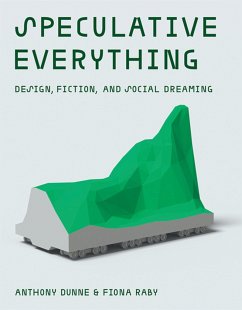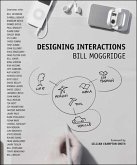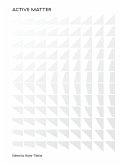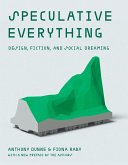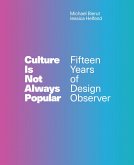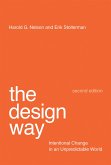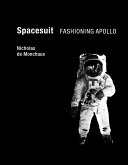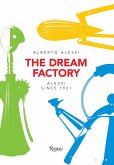Designers are usually seen as problem solvers. Their function is to make a product better or more beautiful, or to make a process more efficient. But what if, instead of solving problems, they posed them? That is the premise behind Speculative Everything, the first book to look in detail at the kinds of results such an approach might throw up.... Anthony Dunne and Fiona Raby, professors at London's Royal College of Art, have been the most articulate proponents of the idea of critical design . Their concern is not to design products to be sent out into a slightly uncertain future but rather to imagine how that future might be entirely different. The result is a series of scenarios that help to illuminate moral, ethical, political and aesthetic problems. Financial Times
Speculative Everything neatly and quietly dispels the myths, misunderstandings and simplifications surrounding speculative design. Of course, there will always be people who dismiss Dunne and Raby's work for being too arty, and, well, too speculative to be strictly design but if some of them ever read the book, i'm quite convinced that they will at least agree on the fact that its authors ask some valid questions and more importantly perhaps articulate them in an intelligent, compelling way.
We Make Money Not Art
In conclusion, something should be said about how refined and handsome this book is, as a designed artifact. Though it's a work for the academy and not for the coffee-table, it deliberately upholds a high standard. All the illustrations, and there are many, are in crisp resolution, while starkly obvious pains have been taken to see that due credit was given to every creative person involved in every image. It's the polar opposite of the carefree, slobbering virality of Youtube, Tumblr, and this weblog, and there's something heart-lifting in its living demonstration of what can be achieved today. Not tomorrow, and not in the imagination but really, right here and now.
Bruce Sterling, Beyond the Beyond
Speculative Everything neatly and quietly dispels the myths, misunderstandings and simplifications surrounding speculative design. Of course, there will always be people who dismiss Dunne and Raby's work for being too arty, and, well, too speculative to be strictly design but if some of them ever read the book, i'm quite convinced that they will at least agree on the fact that its authors ask some valid questions and more importantly perhaps articulate them in an intelligent, compelling way.
We Make Money Not Art
In conclusion, something should be said about how refined and handsome this book is, as a designed artifact. Though it's a work for the academy and not for the coffee-table, it deliberately upholds a high standard. All the illustrations, and there are many, are in crisp resolution, while starkly obvious pains have been taken to see that due credit was given to every creative person involved in every image. It's the polar opposite of the carefree, slobbering virality of Youtube, Tumblr, and this weblog, and there's something heart-lifting in its living demonstration of what can be achieved today. Not tomorrow, and not in the imagination but really, right here and now.
Bruce Sterling, Beyond the Beyond

